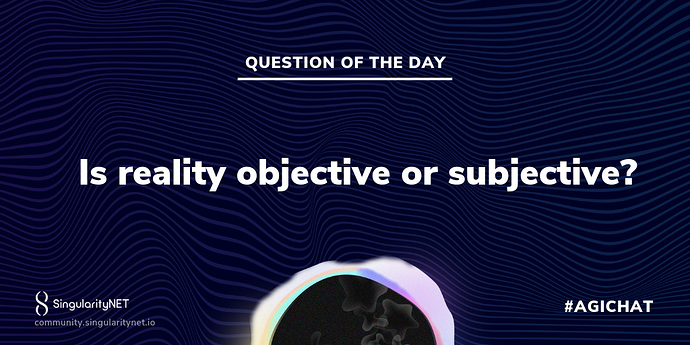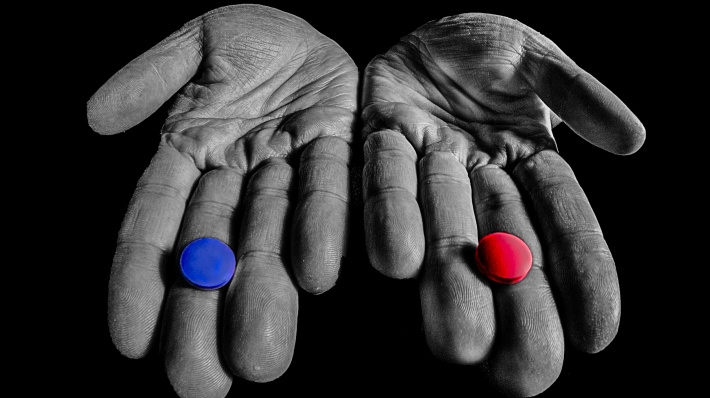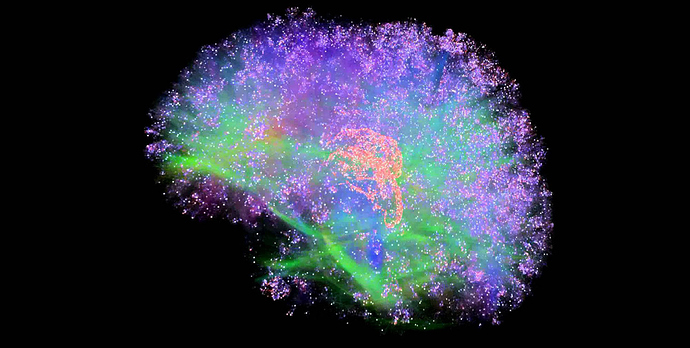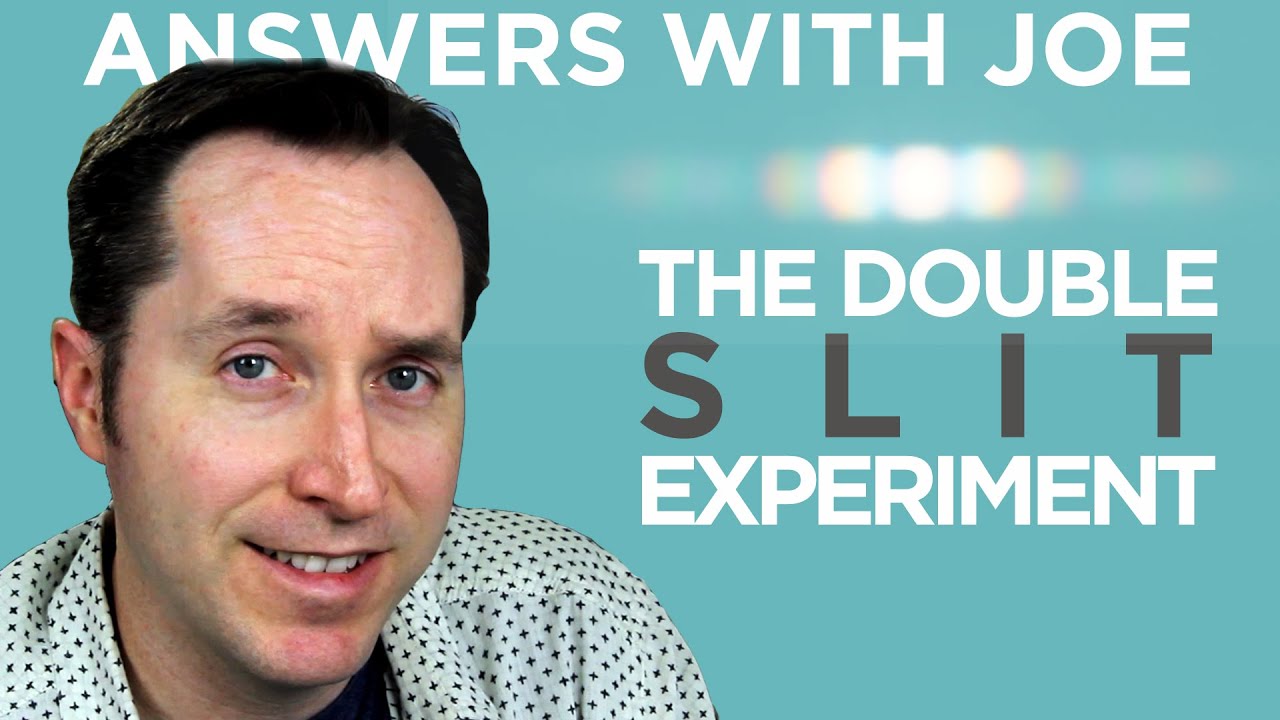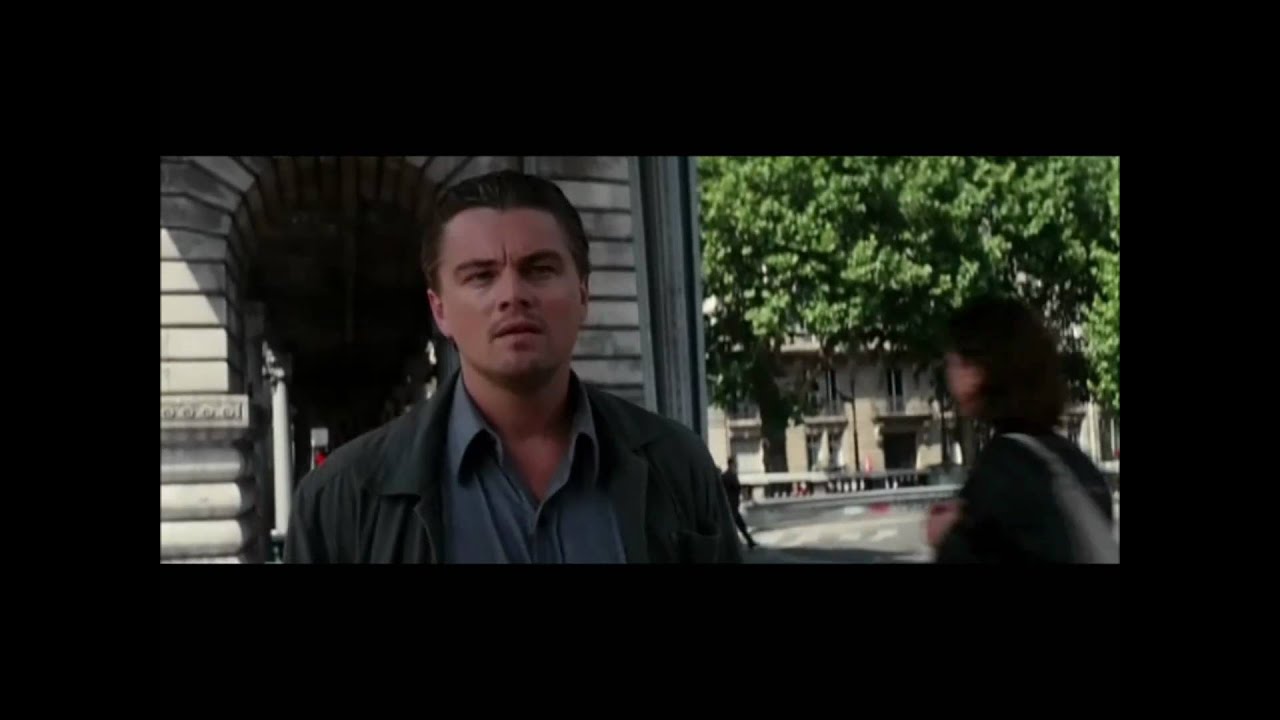The benefit of asking the big questions is that sometimes you can use reasoned logic to answer them. There are a few big questions that I’ve successfully answered to my satisfaction, and I don’t expect my answers to change with the passage of time.
One of those big questions is whether this reality is objective or subjective.
Before we can dive into this question though we should define exactly what we mean by Objective / Subjective reality.
Objective Reality
A reality that completely exists independent of any conscious entity to observe it.
Subjective Reality
The perception of all things, concepts, and "truths" in the universe differs between individuals: we all live in different worlds, each of which may have things in common, because of our unique perspectives on our worlds.
As it is well known, subjective reality is “subject” to an elaborate set of filters, any one of which can modify a perception of that reality; sensory apparatus (e.g. the rods and cones in our eyes), sensory processing (e.g. the visual cortex), higher level brain function, and psychological factors (e.g. expectations). As such, what one person experiences is always different than what any other person experiences, but usually in subtle ways.
Fundamentally, one cannot prove the existence of an objective reality. We can only infer its properties through observations, which of course, are subjective. However, it may be possible to prove that objective reality doesn’t exist, if, for example, it can be shown that the properties inferred via a particular observer fundamentally contradict properties inferred via another observer. But even then those inferences may be hopelessly subjective. Suppose person A sees a car as red and person B sees the same car as green. We can’t conclude that there is no objective reality because person B could simply have an unusual filter somewhere between the car and the seat of their consciousness.
What if we can use some sort of high-precision reproducible measurement apparatus to make some observations on reality and find that under certain controlled circumstances, reality changes depending on some parameter that appears to be disconnected to the reality itself? There are a lot of qualifiers and imperfections in that question – like “high (vs. infinite) precision” and “appears” – but what comes to mind is the well-known double slit experiment. In 1998, researchers at the Weizmann Institute of Science, demonstrated that reality shifts depending on the amount of observation, even if the “observer” is a completely non-intrusive device.
IQOQI upped the ante in terms of precision in 2008 by showing that objective reality doesn’t exist to a certainly of 80 orders of magnitude (probability of being false due to error or chance = 1E-80). That’s good enough for me. And, in 2012, Dr. Dean Radin conducted what appear to be well-designed and rigorous scientific experiments that show to a high probability that conscious intent can directly alter the results of the double slit experiment. Just as it only takes one white crow to prove that not all crows are black, it only takes one experiment that demonstrates the non-existence of objective reality to prove that objective reality is an illusion or does it?

So if the above is true then why are we even having a debate? Surely with this kind of evidence then the answer to the question has been finally found?
Well not, unfortunately, or fortunately depending on which side of the fence you stand.
The reason this question cannot ever be answered with a firm yes or no is rather simple. A subjective reality can simulate an objective one, and vice versa. So there’s no way to know if there’s another container of the opposite type one level below your current reality.
If this container effect sounds unlikely, notice that you already experience it when you have a nighttime dream. During such a dream, you’re in a subjective world. Your dreamscape is supposedly happening in your imagination.
If you believe that your waking world is objective, then your physical brain is doing the dreaming, so there’s an objective layer beneath your subjective dream world. Events in that objective world could even interfere with your dream, or they could influence how the dream turns out. Something could happen to your physical body while you’re dreaming. Your dream world isn’t free and separate from its objective container. Furthermore, the limitations of your physical brain constrain the depths of your subjective dream world simulation. Your dream world is running on physical hardware – the hardware of your brain and its billions of neurons.
On the other hand, if you believe that your waking world is primarily subjective, then you still don’t know if there’s another objective layer beneath that. Maybe your true nature is that of an objective being dreaming up a subjective story here. But even if you woke up to that reality at some point, such as when you die in this waking reality, you still don’t know if there’s yet another layer below that.
Another possibility is that there could be a subjective reality beneath this one, and it’s just simulating (or dreaming up) a seemingly objective reality based on rules and constraints. It’s much like having a non-lucid dream at night. If you don’t know that you’re dreaming, you automatically limit what you can do. But if you become lucid and realize you’re dreaming, you can do many more things in the dream world such as flying, creating characters, and more. You can change the simulation.
If a nighttime dream can so easily fool you into thinking that it’s an objective reality, isn’t it possible that your waking world is a similar construct? Have you explored the possibility that you might be dreaming right now? If that sounds ludicrous to you, you haven’t thought about this deeply enough. Take these questions seriously. They’re among the more important questions you could possibly ask as a conscious being.
The Objective-Subjective Equivalence Principle
Subjective and objective reality are always translatable to each other. They can never actually contradict each other, no more than your left eye can contradict your right one. These are two perspectives looking at the same sensory data.
Any event that you can describe objectively will have an equivalent subjective explanation and vice versa. It is similar to viewing the world through your left eye vs. your right eye. Your eyes don’t contradict each other; they just see every scene from different perspectives.
If you will never know whether you’re living in an objective or subjective reality, it’s foolish to assume that you’re living in one or the other since you’d only be guessing, and you could be very wrong. There is no evidence-based way to know the truth. This isn’t a problem that any level of science or philosophy can ever hope to resolve. The truth is simply unknowable, and it always will be. No conscious being, no matter how powerful and aware, will ever be able to know the true nature of the reality which contains it.
Hence it makes sense to live in alignment with both possibilities. View your key decisions in life through both lenses, and lean toward deciding based on the combined perspective of stereo vision. Don’t limit yourself to one perspective or the other. Learn to integrate both.
When you stray too far into one perspective or another, making decisions from only one perspective in such a way that those same decisions would seem irrational when considered through the opposite lens, you’re at risk of making serious errors. You could be basing those decisions on completely erroneous assumptions about how reality actually works, and hence you’re at risk of experiencing massive failure with such a mono-lens approach unless you happen to guess right and be perfectly consistent.
It is possible to make decisions using both lenses. I’ve been using this approach for years, and it has produced a wonderful flow in my life when I’m consistent about it. It is similar to enjoying a meal that stimulates all of your senses simultaneously a symphony of input.
The inherently unknowable nature of reality can be a tough pill to swallow, at least initially. It can send you down the rabbit hole and back many times. But the more you surrender to this simple truth, the more wondrous reality can become.

